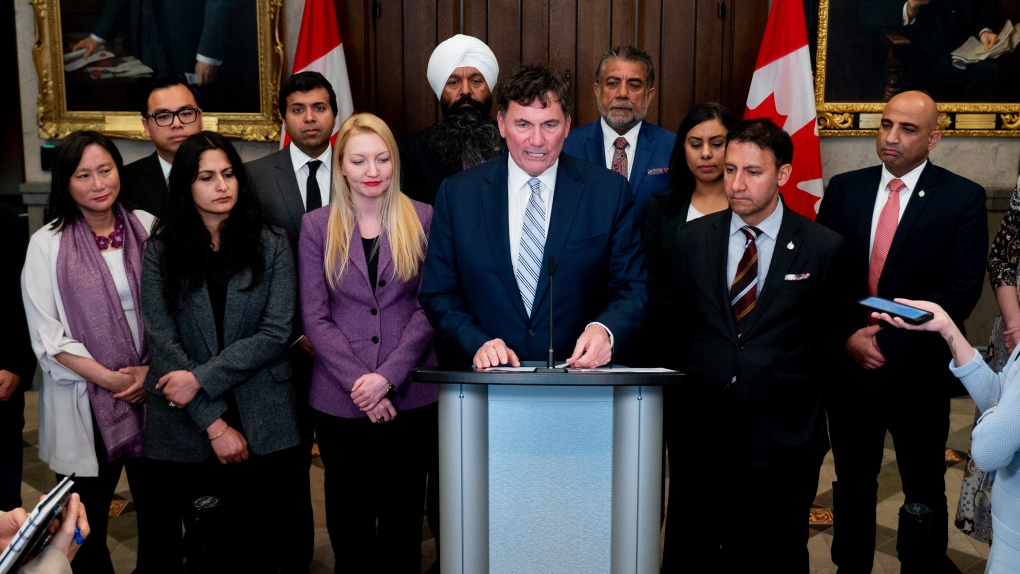
Canadian gov't proposes new foreign influence registry as part of wide-spanning new bill
CTV
Prime Minister Justin Trudeau's government is proposing a suite of new measures and law changes aimed at countering foreign interference in Canada, amid extensive scrutiny over past meddling attempts and an ever-evolving threat landscape.
Prime Minister Justin Trudeau's government is proposing a suite of new measures and law changes aimed at countering foreign interference in Canada, amid extensive scrutiny over past meddling attempts and an ever-evolving threat landscape.
Public Safety and Democratic Institutions Minister Dominic LeBlanc tabled the legislation in the House of Commons on Monday.
"We're taking action to adapt and to respond to our world where life, and consequently threats, are increasingly moving to the online realm," LeBlanc said, backed by Justice Minister Arif Virani and several other Liberal MPs.
Bill C-70, the "Countering Foreign Interference Act," spans nearly 100 pages and proposes to enact a new "Foreign Influence Transparency and Accountability Act," which would include appointing a new foreign influence transparency commissioner responsible for maintaining a publicly accessible registry.
Billed as a way to enhance transparency over influence activities undertaken by foreign states and their proxies in Canada, the Liberals are proposing to require foreign entities, seeking to enact some influence activity related to a government or political process, to register.
This would include foreign states or businesses seeking to communicate with a politician or the Canadian public about the development of a policy, the holding of an election or nomination of a political candidate, as examples. Properly accredited diplomats would be exempted.
Foreign principals' failure to register this activity could result in fines of up to $5 million or up to five years in prison, according to senior federal officials who briefed reporters on the bill. It remains to be seen how quickly the registry could be established, but it is expected to take at least one year after the legislation becomes law.





















 Run 3 Space | Play Space Running Game
Run 3 Space | Play Space Running Game Traffic Jam 3D | Online Racing Game
Traffic Jam 3D | Online Racing Game Duck Hunt | Play Old Classic Game
Duck Hunt | Play Old Classic Game